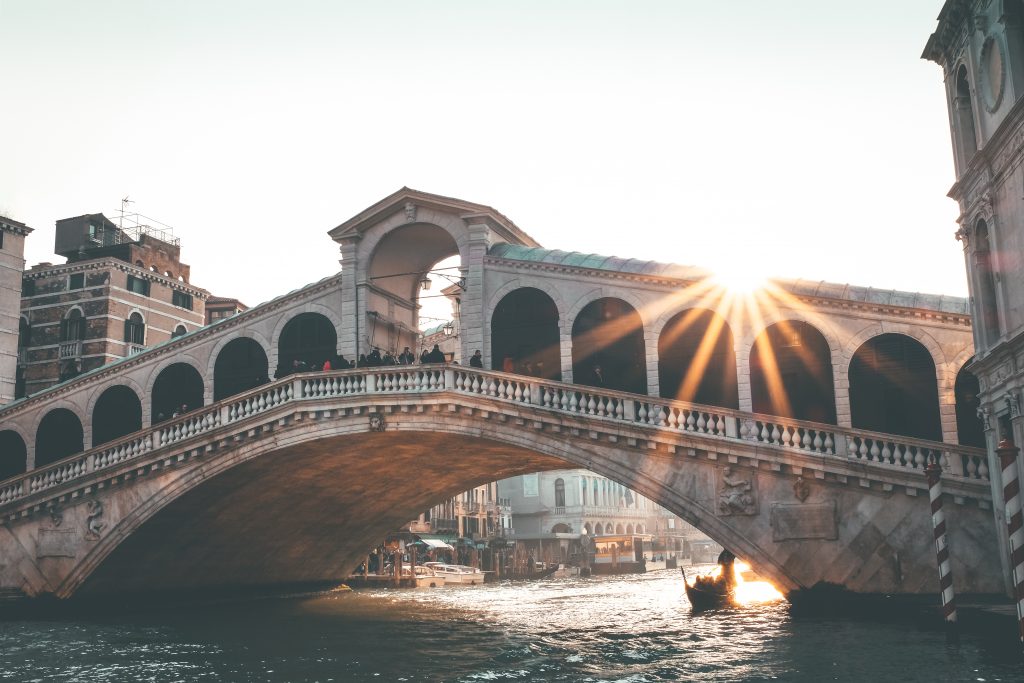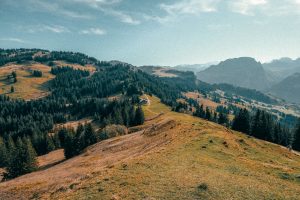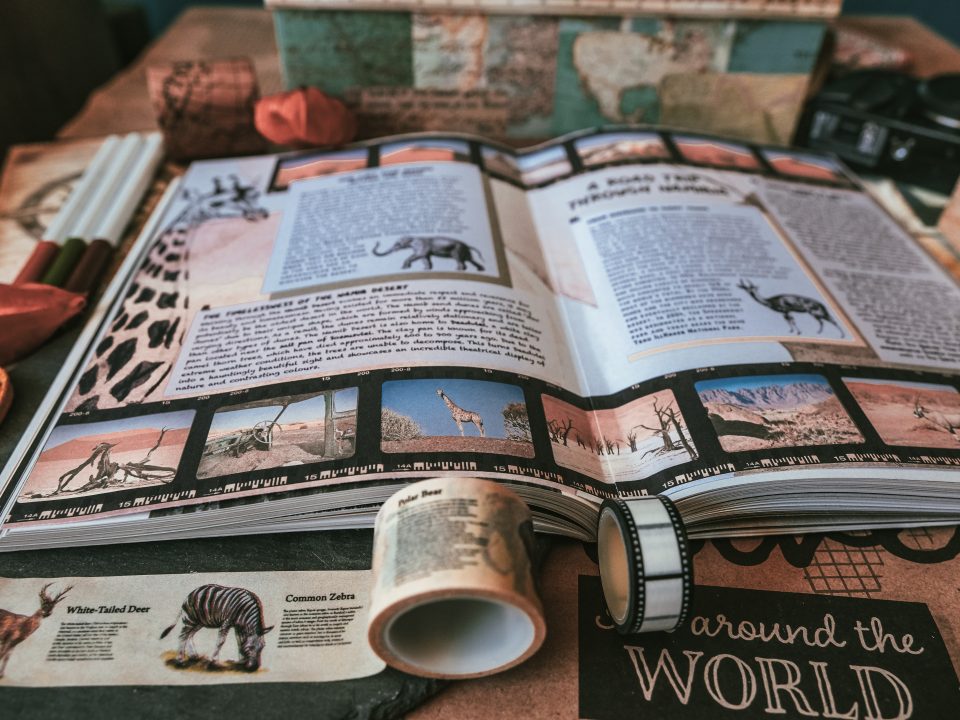"Don't destroy what you came to enjoy.”
There is no other time in the history of mankind where humans have been more mobile than they are today. The costs of travel have significantly decreased and the world has become more accessible than ever before. This has led to a continuing rise in tourism, as well as the positive and negative consequences thereof.
If you are lucky enough to travel, the importance of travelling responsibly cannot be understated. Below you will find a list of simple ways to be a more responsible traveller:
1. Not everything is “about the ‘gram”
We are putting this right on the top because we believe that it is one of the most important points on the list. With the rise of social media, many travellers feel pressured to take what they call “Instagram-worthy” images. Without regard for culture, tradition, respect or safety, people feel the need to take the most viral-inducing photographs. This leads to several problems, including animal tourism where one can take pictures with wild animals, the desecration of holy places by travellers with spur of the moment ideas like taking topless photos on top of a sacred hill as well as many irritated locals who are tired of having their pictures taken without permission.
When travelling, always remember that you don’t have to picture everything. Not everything must be Instagram worthy – in fact, not everything needs to be posted in the first place. Most importantly, never take a picture that the person didn’t agree to, that could offend a local culture or tradition or hurt the wellbeing of an animal.
If you are into street photography, research local best practices in advance. In the end, it is always the best option to ask permission first.
2. All things local
This is one of the easiest ways to be more responsible while traveling. Dine in local restaurants, buy your necessities from local kiosks and shops and consider staying in local hotels, homestays and bed & breakfasts. It may seem like nothing but these simple measures help local businesses and contribute to the local economy.
Show your appreciation: if you are happy with your stay, the service you received or the products you bought, leave a comment on their TripAdvisor or Google reviews page!
3. Be wary of attractions involving animals
Animal tourism has become such a common phenomenon that it almost appears normal. Don’t engage in any attractions where you can take selfies with animals, where animals perform tricks or where you can ride animals. For more information, read this detailed account from National Geographic on the suffering of animals in animal tourism.
Would you drug your dog or cat so that it would be sedated day in day out, so that strangers can take pictures with them? If your answer is no, then why should it be okay with tigers, lions and other wild animals?
4. Refuse, reuse, reduce, recycle
Every time you come in touch with something that results in trash – think twice. Consider the following steps:
- Bring your own reusable bag to avoid the need for plastic
- Refuse straws or bring your own reusable one; refuse the use of single use plastics in general (eg. plastic cutleries)
- If you generated trash, throw it in the correct trash bin in accordance to the local recycling system
- Bring your own reusable water bottle
- Don't print your boarding passes unless absolutely necessary
- Bring reusable food containers to pack your own snacks or to be used for takeout
- If you are done using the city guides and maps that you have received from your hotel, leave them at the reception at the end of the trip, so that they can be used again
- Bring a small food container with you if you often cannot finish your meals in the restaurants and wish to bring it back to your accommodation
5. Leave no trace behind
Don’t litter – even if you see locals do it. Also check out Leave No Trace for a detailed guide.

6. Other environmental tips
- Use reef-safe sunscreen,
- Don’t purchase souvenirs of endangered species, corals, shells or artefacts.
- Generally speaking, leave what you found where you found it.
- When hiking or camping, be sure to follow the rules of the park.
7. Reduce your carbon footprint
Use public transportation whenever you can. Walk whenever you can. Bike whenever you can. Consider destinations where you can cover vast grounds through trains (eg. Europe tours). If you fly, consider packing light. Don’t waste water and consider eating less red meat.
8. Respect local culture and traditions
This is one of the most important points on being a responsible traveller. Understand what the dress codes are and respect the practice, even if you may be inconvenienced. If you visit religious monuments, admire it with respect and obey the rules when you are on religious ground, even if you don’t share the beliefs. Always remember – you are a guest and it is important to act with respect and kindness. Before visiting a country, educate yourself as well about the country’s current affairs and its past in order to understand the culture, traditions and current situation in a more in-depth context.
9. Pay the right price
Tourists often feel that they are overcharged and ripped off. It is important to keep things fair, in order to not give locals the wrong impression that it is all right to trick tourists into paying more. It is however equally important to remember not to bargain too aggressively. Remember that these sellers are making a living off their sales. In the end, it should be fair for both sides. Also refrain from giving money to beggars. If you want to help a specific homeless person directly, it is encouraged to rather give food than money. Furthermore, you can check out local organisations or volunteering programs that have the best interests of their causes in mind.
10. Speak up if you see injustice against animals or when people don’t respect the rules
If you see someone take out star fishes for photos, tell them respectfully but firmly not to do so. If you see someone use flash cameras when they are not supposed to (eg. flash photography on nocturnal animals such as the Philippine tarsiers or on highly sensitive artworks like The Last Supper) – tell them. If you see people touching wildlife even if they are not supposed to – tell them. If you see people wander of the official hiking trails during tours – tell them. It may be an uncomfortable confrontation, but it is one’s duty to educate others. It may sometimes be difficult not to get angry or emotional; hence, it is important to do so with respect and kindness.
11. Act like an overall decent person with common senses
It may sound like a no-brainer but this point sums up the entire list. Some travellers have the urge to “go wild” when they are in a foreign land and act in ways they would never dare to at home. But a mentioned above, always remember that you are a guest. Be kind to strangers, offer a helping hand, treat others with respect, talk to locals, learn a few basic words of the language and show understanding and compassion when correcting other people’s mistakes. Always rely on your common sense and don’t do something that you wouldn’t want others to do unto you.
Travel makes one modest. You see what a tiny place you occupy in the world.





